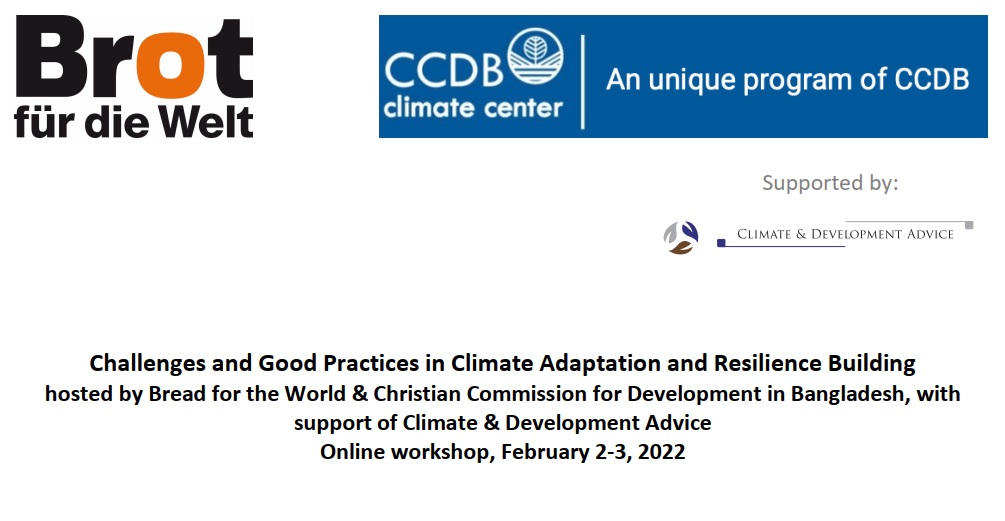Challenges and Good Practices in Climate Adaptation and Resilience Building

The climate crisis puts at risk the communities we work with across Asia. Accelerating climate impacts increasingly expose communities to climate risks, threatening lives and livelihoods and going beyond the protective function of traditional coping strategies. Therefore, it has become important to enhance community resilience by taking climate adaptation and climate risk reduction measures. Building on the definitions of the United Framework Convention on Climate Change (UNFCCC) and the Inter-Governmental Panel on Climate Change (IPCC) we define climate resilience as ‘ability of a system, community, or society exposed to hazards to resist, absorb, accommodate to, and recover from the effects of a hazard in a timely and efficient manner, including through the preservation and restoration of its essential basic structures and functions. The resilience of a community in respect to potential hazard events is determined by the degree to which the community has the necessary resources and is capable of organizing itself both before and during times of need.’ (ACT Alliance 2020, Climate Risk Insurance and Risk Financing in the Context of Climate Justice. A Manual for Development and Humanitarian Aid Practitioners).

